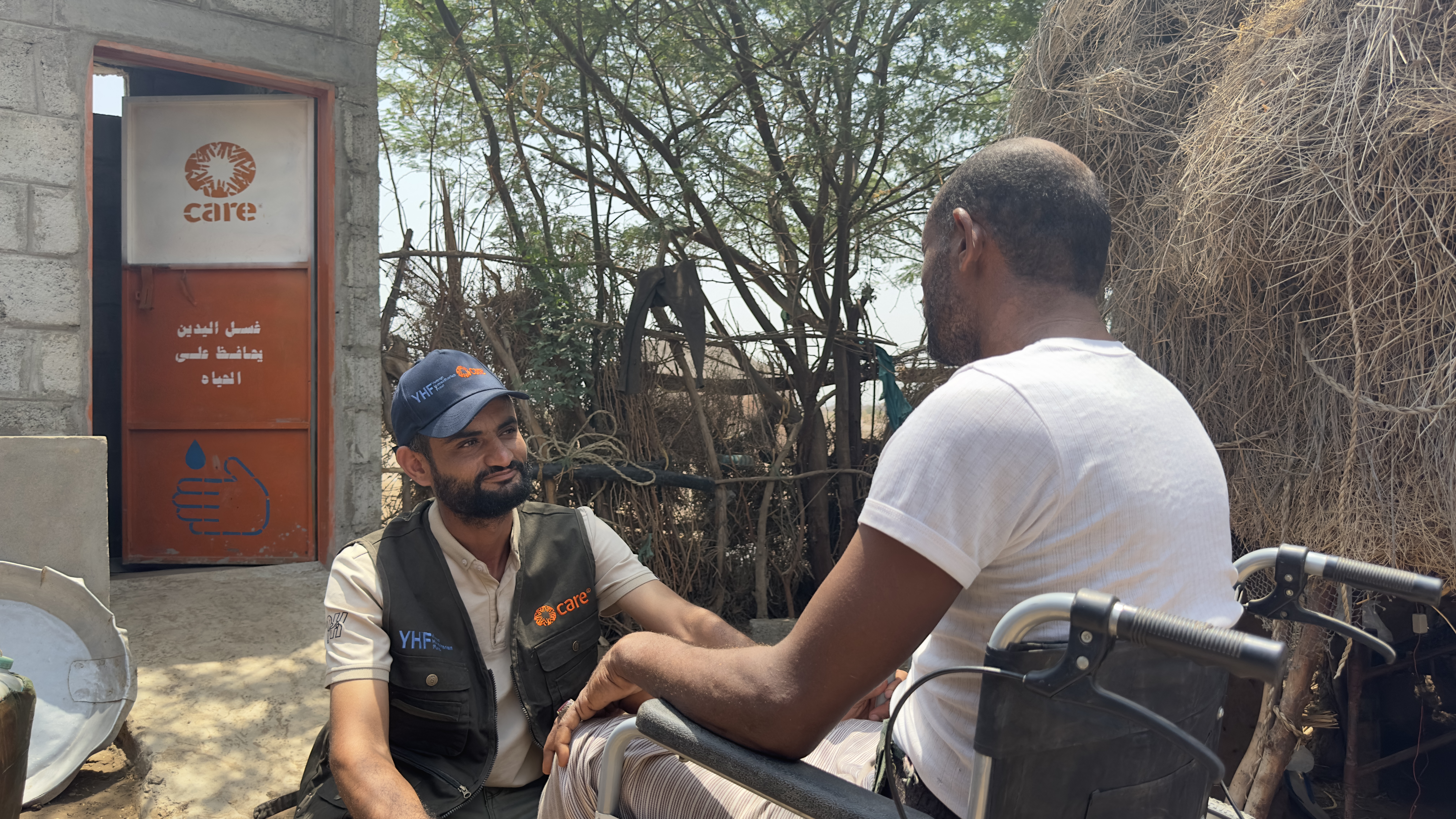“Our village suffered from the lack of water and basic human needs,” says Shawki, a resilient man from Al-Qanawis in Al-Hodaidah Governorate. He is a devoted husband and father to five children, living with a disability. Despite the challenges, his story is one of perseverance and hope, especially in a village that grapples with the scarcity of water and basic human needs. The absence of reliable water sources forced the community to rely on donkeys to transport water from distant locations, a laborious and time-consuming task.
Shawki struggles to access the communal water point. The path is uneven, and the facilities are not designed for someone with his needs. His family worries constantly about his health and well-being, knowing that clean water is essential for his care.
With funding from the Yemen Humanitarian Fund (YHF), CARE intervened in Hodeidah Governorate’s Al-Qanawis district, delivering a project focused on meeting WASH needs for the communities. Shawki’s life took a turn for the better when he became a beneficiary of this project which aimed to improve the living conditions of vulnerable communities by providing access to essential services, including water and sanitation. A newly built water tank in Ketf Al-Barqi is now connected by a network designed to provide water source access to 775 households. The project also provided latrines for 530 households in three sub-districts of Al-Hodaidah.
For Shawki, the most significant impact came in the form of a newly constructed latrine, specifically designed to be accessible for people with disabilities. “Any house without a latrine can’t be called a home,” he emphasizes. The latrine has not only provided him with essential privacy and dignity but has also improved the overall hygiene and health conditions for his family.
In addition to the latrine, Shawki’s household has been connected to the newly built water network. This has transformed their daily lives, eliminating the arduous task of fetching water and ensuring a reliable supply for drinking, cooking, and cleaning.
“I’ve been bearing this disability for a while, and I had been suffering right until they provided us with a latrine and water source,” Shawki says. The improvements brought about by the project have not only enhanced his physical well-being but have also restored his sense of hope, dignity and independence.
With access to clean water and adequate sanitation, he and his family are taking steps towards a healthier and more stable future.


